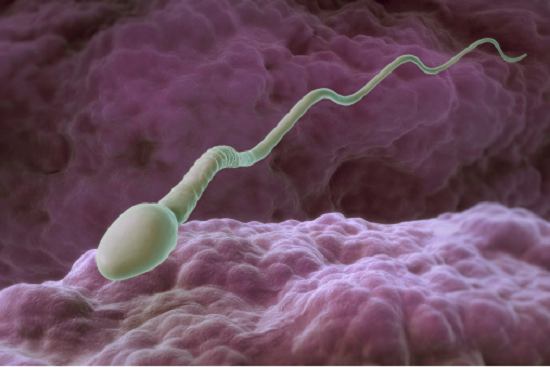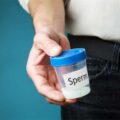Semen, also called seminal fluid, is fluid that is emitted from the male reproductive tract which contains sperm cells, which are capable of fertilizing the female’s eggs. Semen also contains liquids that combine to form seminal plasma, which helps keep the sperm cells viable.
According to a study conducted and published in the Journal of Clinical Practice, there is a high rate of abnormal semen quality of male partners of infertile couple. Male sperm is normally thick and white in color. Watery semen can be a sign of low sperm count, indicating possible fertility problems.
The following are signs that you have healthy sperm:
Thick sperm texture. The primary characteristic of healthy sperm can be indicated by its thickness. If the sperm is thick and sticky, it means that you are in good health. Normal sperm have oval heads and long tails, which work together to propel them. While not as important a factor as sperm quantity or movement, the more sperm you have with a normal shape and structure, the more likely you are to be fertile.
White or yellowish sperm. When ejaculating, try to look at the color of the sperm. If it is white or yellowish, it means you have healthy sperm.
Quantity of the sperm. The number of sperm released during ejaculation is also a determining factor if the sperm is healthy. The World Health Organization (WHO) defines low sperm count, or oligospermia, as producing fewer than 15 million sperm per milliliter of semen. Having a low sperm count can make it more difficult for a person to conceive but does not necessarily mean that a person is infertile.
Smell and Motility. Another characteristic of healthy sperm is that your sperm smells like acacia trees. To reach and fertilize an egg, sperm must move wriggling and swim through a woman’s cervix, uterus, and fallopian tubes. This is known as motility. You’re most likely to be fertile if at least 40% of your sperm are moving.
What are the causes of a watery sperm?
Watery semen is a case when there is very little to no sperms. It can be caused by the following:
Low Sperm Count. A condition called ‘Oligozoospermia’ where there is less than 15 million sperms per ml of semen. This is one of the most common conditions in men who are infertile.
Varicocele. A condition where the veins in the scrotum swell. A treatable medical condition that is surely treatable by a good andrologist. Varicocele can cause infertility.
Infection. Few sexually transmitted infections such as Gonorrhea can infect the male genitals and cause inflammation of the reproductive organs (Epididymitis) resulting in the non-production of enough sperms.
Tumors. Non-cancerous or cancerous tumors in testicles affect the production of sperms.
Imbalance in hormones. Hormones produced by the pituitary gland and hormones produced in testicles are responsible for the production of sperms. Changes in hormone levels cause changes in sperm production.
Retrograde Ejaculation. A condition where the sperm is released into the bladder instead of ejaculating out of the penis.
Injury to the sperm and semen-carrying tubes can also lead to watery semen.
How To Make Sperm Thicker And Stronger
The consistency of semen varies from person to person. It can also change over time or even from one ejaculation to another.
There are several simple steps you can take to increase your chances of producing healthy, thicker, and stronger sperm, they include:
Avoid a sedentary lifestyle. Moderate physical activity can increase levels of powerful antioxidant enzymes, which can help protect sperm. Studies show that men who exercise regularly have higher testosterone levels and better semen quality than inactive men.
Avoid alcoholic drinks and illicit drugs. Studies show heavy, consistent drinking or binge drinking five or more drinks in men in a two-hour timeframe have negative effects on sperm. More than 14 mixed drinks in a week can lower testosterone levels and affect sperm count. If you drink alcohol, do so in moderation. One 2018 Review has linked the worldwide use of drugs such as alcohol, marijuana, and cocaine to decreased sperm production. Some evidence is conflicting, so further research is necessary to confirm this link.
Quit Smoking. Men who smoke cigarettes or vape are more likely to have low sperm counts. If you smoke, ask your doctor to help you quit. A 2016 meta-analysis that reviewed the results of over 20 studies with a total of nearly 6,000 participants found that smoking consistently reduced sperm count. The researchers found that people who smoked moderate or heavy amounts of tobacco had a lower sperm quality than people who smoked tobacco less heavily.
Maintain a healthy weight. Losing weight if you’re overweight is one of the single most effective things you can do to increase sperm count. Studies have shown that weight loss can significantly increase semen volume, concentration, and mobility, as well as the overall health of sperm. Some research suggests that increasing body mass index (BMI) is linked with decreasing sperm count and sperm movement.
Prevent sexually transmitted infections (STIs). Sexually transmitted infections such as chlamydia and gonorrhea can cause infertility in men. To protect yourself, limit your number of sexual partners and use a condom each time you have sex, or stay in a mutually monogamous relationship with a partner who isn’t infected.
Avoid Junk food and Eat a healthy diet. Choose plenty of fruits and vegetables, which are rich in antioxidants and might help improve sperm health. Most studies suggest that eating foods that provide good amounts of specific compounds and chemicals allows the body to use them more efficiently. The best way to increase sperm count naturally may be to increase the consumption of foods high in sperm-friendly nutrients, such as vitamin C, antioxidants, and polyunsaturated fats.
Take These Supplements. For most men, taking supplements for three months or longer can improve sperm parameters. Some supplements that can help you get healthy, thicker, and stronger sperm include:
Vitamin D: Researchers are not entirely sure why, but blood levels of vitamin D and calcium appear to impact sperm health. In a 2019 literature review of 18 studies, researchers found a significant association between improved fertility in male participants and a higher level of vitamin D in the blood. However, the study authors do advise caution when interpreting these results, and they recommend further clinical trials to confirm their findings.
Fenugreek supplement: Fenugreek has long been in use as a natural remedy for poor sperm health, and advocates suggest that it may help improve sperm count. In fact, one 2017 study found that the patent-pending compound Furosap, which manufacturers developed from fenugreek seeds, significantly improved overall semen quality and sperm count.
D-aspartic acid supplements: D-aspartic acid (D-AA) is a form of aspartic acid, a type of amino acid that’s sold as a dietary supplement. It should not be confused with L-aspartic acid, which makes up the structure of many proteins and is far more common than D-AA.
D-AA is mainly present in certain glands, such as the testicles, as well as in semen and sperm cells. Researchers believe that D-AA is implicated in male fertility. In fact, D-AA levels are significantly lower in infertile men than fertile men.
Zinc: Zinc is an essential mineral found in high amounts in animal foods, such as meat, fish, eggs, and shellfish. Getting enough zinc is one of the cornerstones of male fertility. Observational studies show that low zinc status or deficiency is associated with low testosterone levels, poor sperm quality, and an increased risk of male infertility. Also, taking zinc supplements increases testosterone levels and sperm count in those who are low in zinc.
Conclusion
Thick semen is a good sign of healthy sperm, especially if the consistency is the same. However, if semen is often very thick, it can signal a problem with the prostate or the seminal vesicles. If a person has very thick semen, a doctor may refer to the issue as “semen hyperviscosity.” If semen is very thick, the sperm cannot move as easily and there may be fewer sperm. As a result, it may be difficult to impregnate a partner. You Can Also Read: Does Viagra Make You Bigger?






